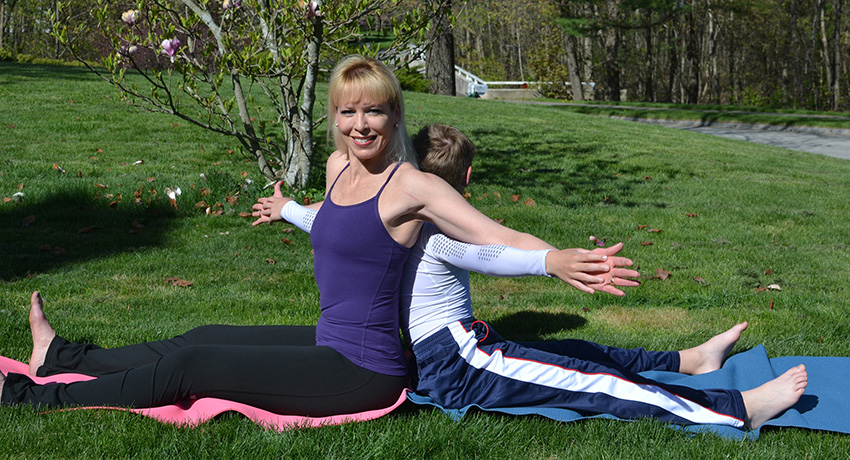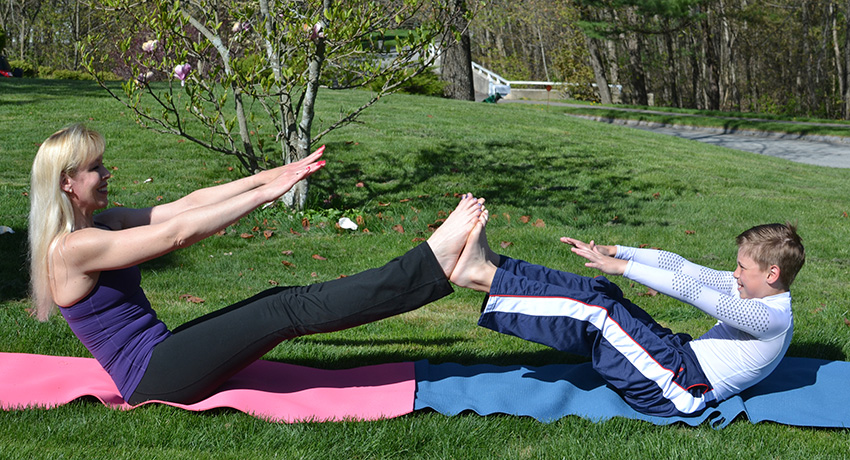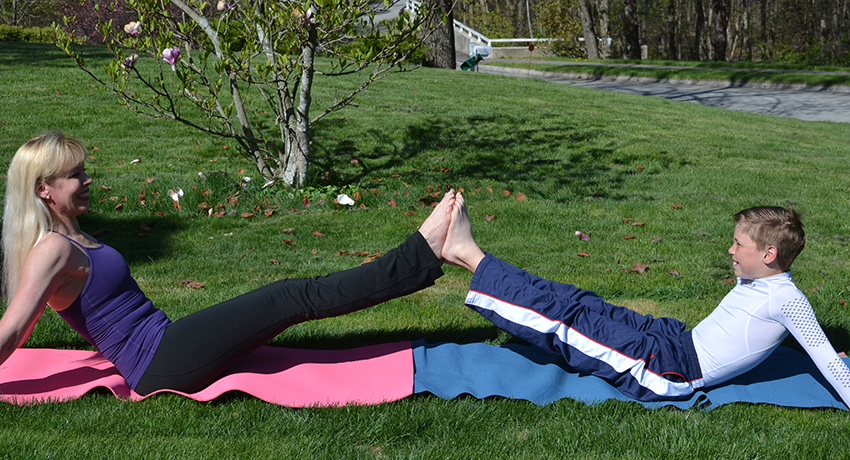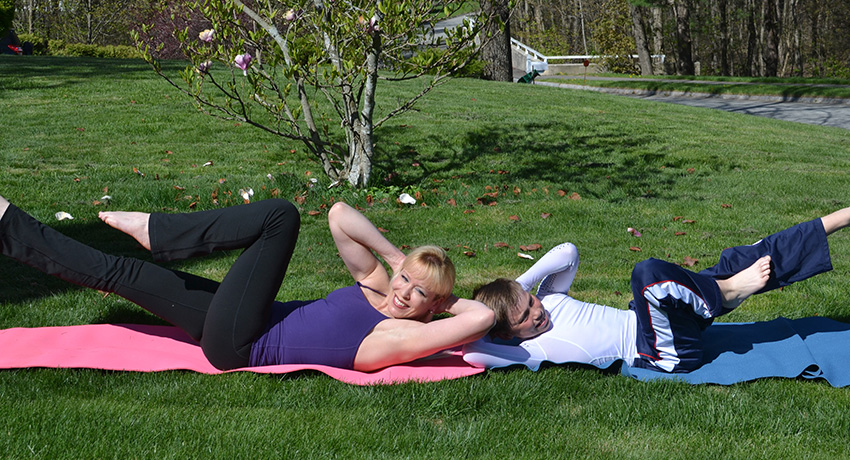Why You Should Do Pilates

Pilates studio photo by melissa malamut
You are only as old as your spine. Well, according to Joseph Pilates, that is. When he was creating his program, originally called Contrology, it was designed as a way to help with flexibility, which he thought was paramount for good health. Joseph Pilates once said, “If your spine is inflexibly stiff at 30, you are old; if it is completely flexible at 60, you are young!”
According to Julie Erickson, owner of Endurance Pilates and Yoga in the South End, and a trainer to Boston Marathon bombing survivor Celeste Corcoran, having the ability to move freely throughout life is very important. “In order to keep this mobility, we must be able to move with control in all of the directions the spine is meant to move: flexion, extension, lateral flexion, and rotation,” she says. “Learning to do this safely and with the support of the muscles of the core is what Pilates is all about.”
Five reasons why you should do Pilates:
1. Your body will get stronger.
“The premise behind the reformer is that it is a tool, an apparatus for the body to use, the student’s body, the actual machine,” Erickson says. “So, unlike a gym workout where we isolate a muscle in order to hypertrophy (build bulk) certain muscles or groups of muscles, in a reformer session, every single muscle in the body and all of the connective tissues (fascia, ligaments, tendons) are used throughout every exercise in the workout. A good reformer session is all you need for full-body strengthening and stretching. A reformer workout will increase overall strength without adding bulk.”
2. You will burn calories.
“[Pilates] is fun; it’s sexy,” Erickson says. “The reformer provides the perfect amount of assistance in all of the right places to stretch and strengthen the muscles, creating those long, lean pilates bodies. Because all of the muscles and connective tissues are constantly working with just the right amount of support and force required, there isn’t any downtime and can be a calorie blaster and cardio workout.”
3. Your body will look a lot better.
“By focusing on corrective and oppositional movement patterning, students can expect to see significant changes in their shape within a few months,” Erickson says. Now, different studios use this quote in different ways, but what they say about Pilates is that after 10 classes you will feel a difference. After 20 classes, you will see a difference, and after 30 classes, others will see a difference in you.
4. It is specifically designed to challenge all of the parts we want to tighten, like the tummy, tush, and thighs.
“Joseph Pilates originally designed his Reformers to lose resistance at precise moments in particular exercises so that the core would be doing all of the work to support the body and the upper and lower body would need to work to stretch and strengthen muscles,” Erickson says. “As the student progresses, the support changes, so the most advanced students are using the least amount of springs.”
5. It makes our posture better and our bodies straighter.
“The reformer acts like a frame and a support for the student’s body so that he can start to increase his range of motion safely and securely,” Erickson says. “He is able to see muscular imbalances and, with the help of a good teacher, use the machine to even strength differences out between the sides of the body.”
Pilates mat moves for people of all ages that you can do anywhere (note: these exercises were done with a partner but are perfect to do alone, as well):

Julie and her son doing a Spine Twist. (Photo provided.)
Spine Twist
Sitting back to back as tall as possible with the back of head, middle back, and tailbones connected, arms stretched long to the sides, fingers interlaced. Inhale to find length in the spine. Exhale to twist to the right, stretching one side of the waist and strengthening the other. Twist a little further and then as far as possible, then returning back to center. Think of wringing out a washcloth as the waist twists and then of getting taller and longer as you return to center. Repeat five twists to each side.

Teaser (photo provided)
Teaser
Sit with the legs reaching at a 45 degree angle. Keep the feet together and roll your torsos down just touching down below the shoulder blades. Then roll back up, reaching for the toes. Roll halfway down and add pulses, trying to keep the feet connected. Roll all the way down and then halfway up, repeating the pulses. Repeat 10 times.

Hip Twist (Photo provided.)
Hip Twist
Sit with the legs reaching at a 45 degree angle. Reach arms back to help lift the chest. Keep the feet together and draw a circle with the legs around to the right, then to the left, stopping at 12 o’clock each time and then reverse direction. Do five circles in each direction.

Criss Cross (Photo Provided.)
Criss Cross
On your back facing away from each other, place your hands stacked behind your head. Pull knees into your chest. Rotates to the right, straightening the left leg out. Switch sides and have alternate your leg movement.


